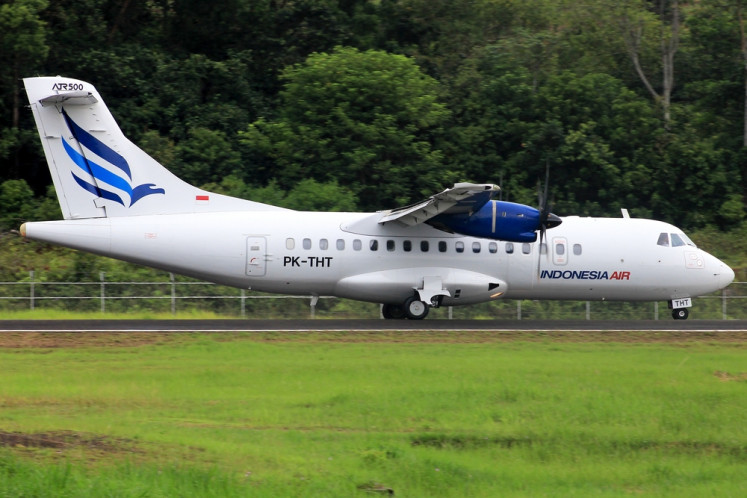Popular Reads
Top Results
Can't find what you're looking for?
View all search resultsPopular Reads
Top Results
Can't find what you're looking for?
View all search resultsCirebon to expand mango groves by 10,000 hectares
West Java’s Cirebon administration plans to further increase the province’s mango production by expanding its mango groves by 10,000 hectares from the current level of 2,300 hectares, following the growth in demand for exports
Change text size
Gift Premium Articles
to Anyone
W
est Java’s Cirebon administration plans to further increase the province’s mango production by expanding its mango groves by 10,000 hectares from the current level of 2,300 hectares, following the growth in demand for exports.
“The expansion is considered as urgent due to the increase in mango demand from abroad,” head of Cirebon Agriculture, Plantation and Livestock Husbandry Office, Ali Effendi, said.
“Currently, our total production has yet to meet international demand,” said Ali, adding it was expected that there would be around 20,000 farmers who were able to cultivate the land.
Gedong gincu and harum manis are two types of mangoes that are favored by the international market.
The mangoes are exported to some countries, including Hong Kong, Kuwait, Malaysia, Russia,
Singapore and the United Arab Emirates.
The annual mango demand, Ali said, reached around 200,000 tons, while the local production was only around 60,000 tons per annum.
“In a year, the total production of gedong gincu is around 40,000 tons, while the farmers produce 20,000 tons of harum manis. So, the production is still way beyond our expectation,” said Ali.
“Therefore, we will gradually expand the number of mango groves in the future from the current 2,300 hectares.”
According to Ali, the large market could be a golden opportunity for local farmers to earn more profits due to the high price of mango overseas.
Gedong gincu is sold for between Rp 10,000 (US$1) and Rp 15,000 per kilogram, while the price of a kilogram of harum manis ranges from Rp 6,000 to Rp 8,000.
“The prices are doubled at the international level. This is a great chance for mango farmers to increase their income,” Ali continued.
He said that his agency would cooperate with the Japanese government to improve and develop mango quality. The partnership includes the seedling process.
“The main obstacles faced by farmers are attacks from fruit flies. We will be assisted by the Japanese government in tackling this problem,” Ali said.
“Fruit flies reduce mango quality. If we can deal with this issue, we are optimistic that we will be able to expand our exports to the US and European countries, which tend to be strict in terms of exports and imports.”
Khaerudin, a mango farmer in Beber district, welcomed the administration’s plan to expand its mango groves.
“Mango planting is a great opportunity for us to get additional income. Many farmers can use spare lands at home to grow mangoes,” said Khaerudin.
“In the meantime, the administration can assist us by procuring high-quality seedlings,” he added.










